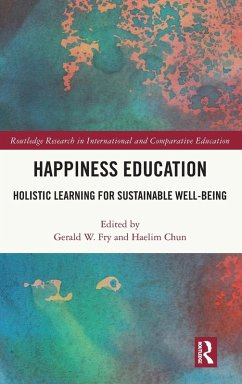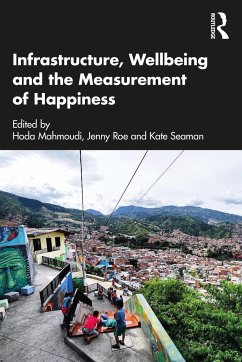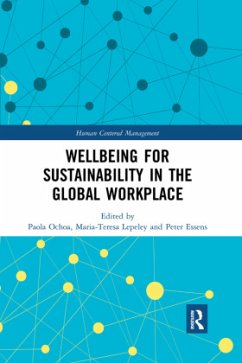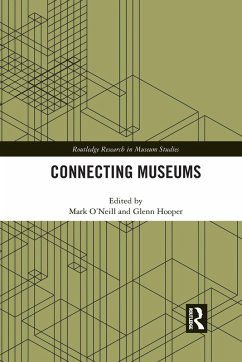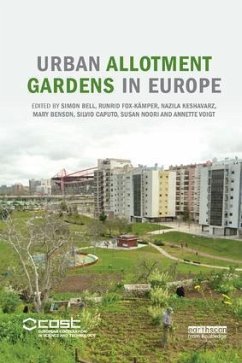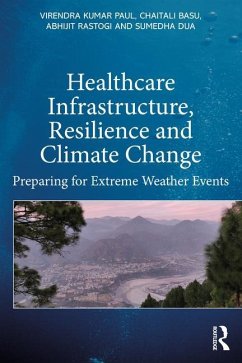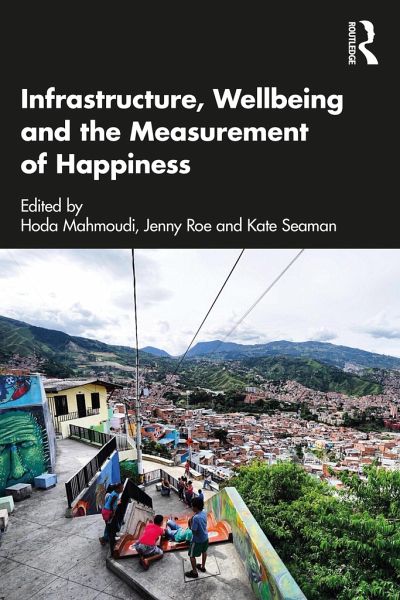
Infrastructure, Wellbeing and the Measurement of Happiness
Versandkostenfrei!
Versandfertig in 6-10 Tagen
40,99 €
inkl. MwSt.

PAYBACK Punkte
20 °P sammeln!
This book takes an interdisciplinary approach to our understanding of infrastructure, and it's influence on happiness and wellbeing, by examining the concept from economic, human development, architectural, urban planning, psychological, and ethical points of view. Providing insights from both research and practice the volume discusses how to develop happier cities and improve urban infrastructure for the wellbeing of the whole population.The book puts forth the argument that it is only in understanding the true nature of infrastructure's reach - how it connects, supports, and enlivens human b...
This book takes an interdisciplinary approach to our understanding of infrastructure, and it's influence on happiness and wellbeing, by examining the concept from economic, human development, architectural, urban planning, psychological, and ethical points of view. Providing insights from both research and practice the volume discusses how to develop happier cities and improve urban infrastructure for the wellbeing of the whole population.
The book puts forth the argument that it is only in understanding the true nature of infrastructure's reach - how it connects, supports, and enlivens human beings - that we can truly begin to understand infrastructure's possibilities. It connects infrastructure to that most elusive of human qualities - happiness - examining the way infrastructure is fundamentally tied to human values and human well-being. The book seeks to suggest novel approaches, identify outmoded undertakings, and define new possibilities in order to maximize infrastructure's impact for all people - with a focus on diversity, inclusion and equity.
In seeking to define infrastructure broadly and examine its possibilities systematically this book brings together theory and evidence from multiple disciplinary perspectives including, sociology, urban studies, architecture, economics, and public health in order to advance a startling claim - that our lives, and the lives of others, can be substantively improved by greater adhesion to the principles and practices of infrastructure design for happiness and wellbeing.
The book puts forth the argument that it is only in understanding the true nature of infrastructure's reach - how it connects, supports, and enlivens human beings - that we can truly begin to understand infrastructure's possibilities. It connects infrastructure to that most elusive of human qualities - happiness - examining the way infrastructure is fundamentally tied to human values and human well-being. The book seeks to suggest novel approaches, identify outmoded undertakings, and define new possibilities in order to maximize infrastructure's impact for all people - with a focus on diversity, inclusion and equity.
In seeking to define infrastructure broadly and examine its possibilities systematically this book brings together theory and evidence from multiple disciplinary perspectives including, sociology, urban studies, architecture, economics, and public health in order to advance a startling claim - that our lives, and the lives of others, can be substantively improved by greater adhesion to the principles and practices of infrastructure design for happiness and wellbeing.






